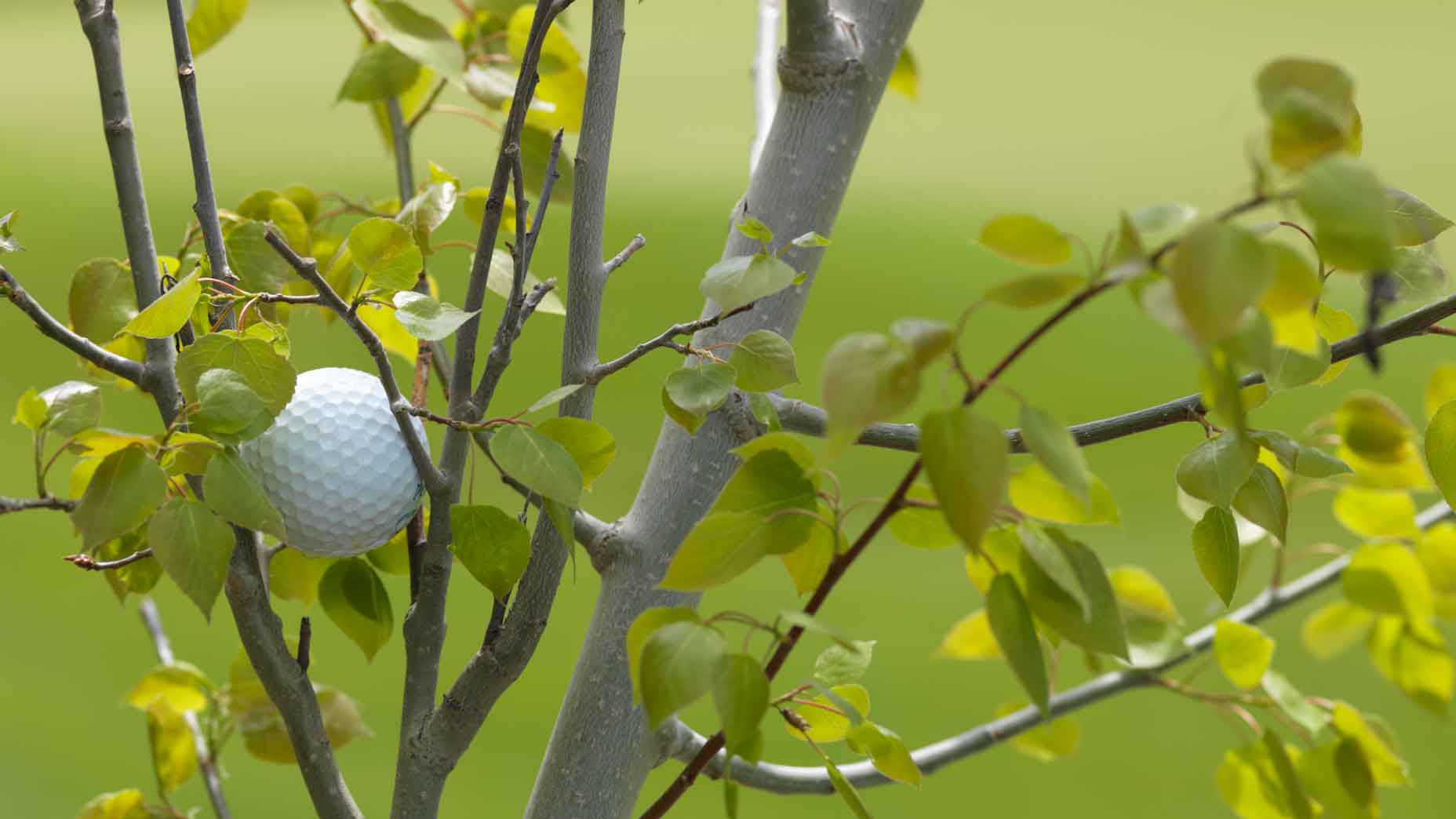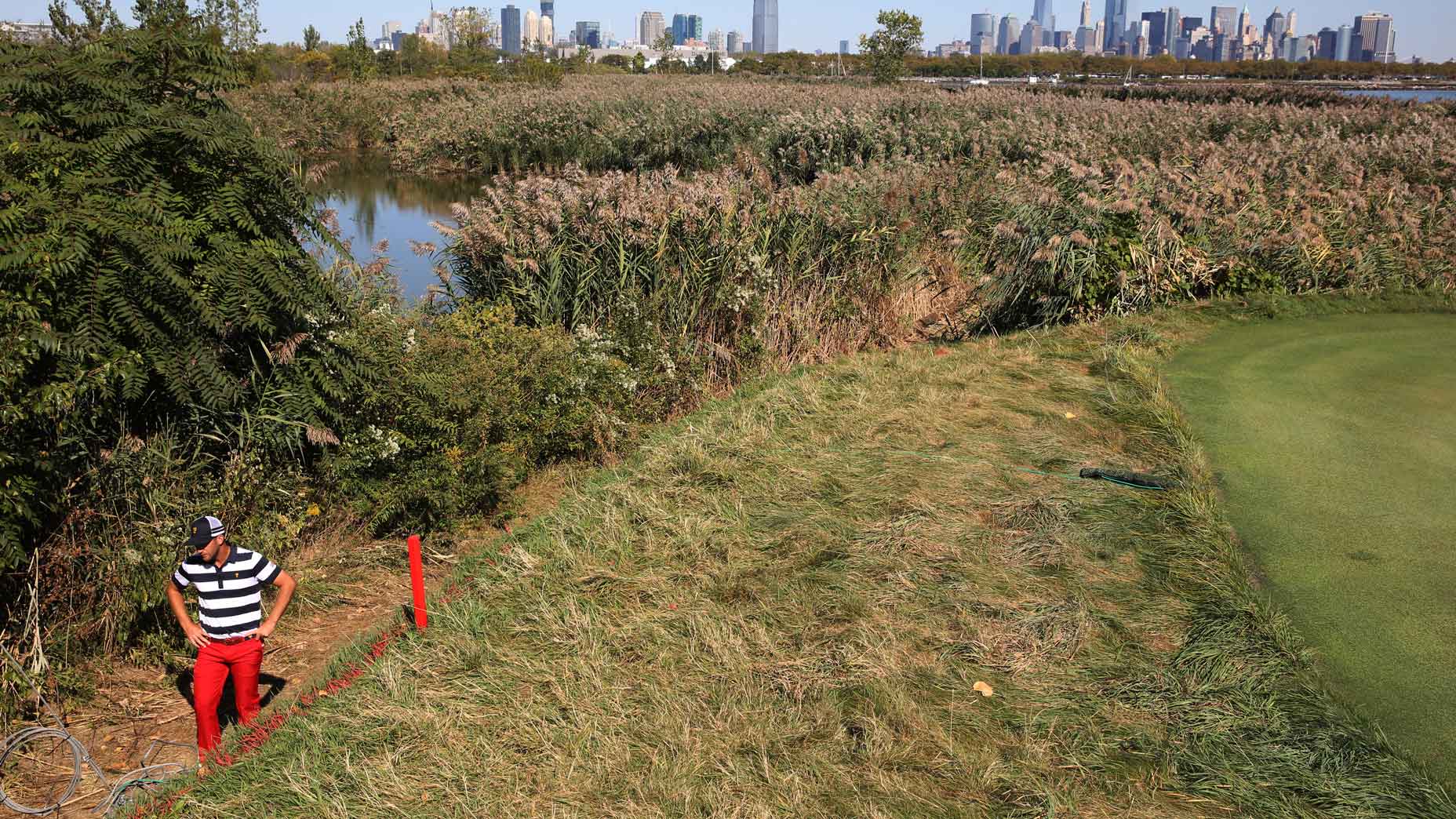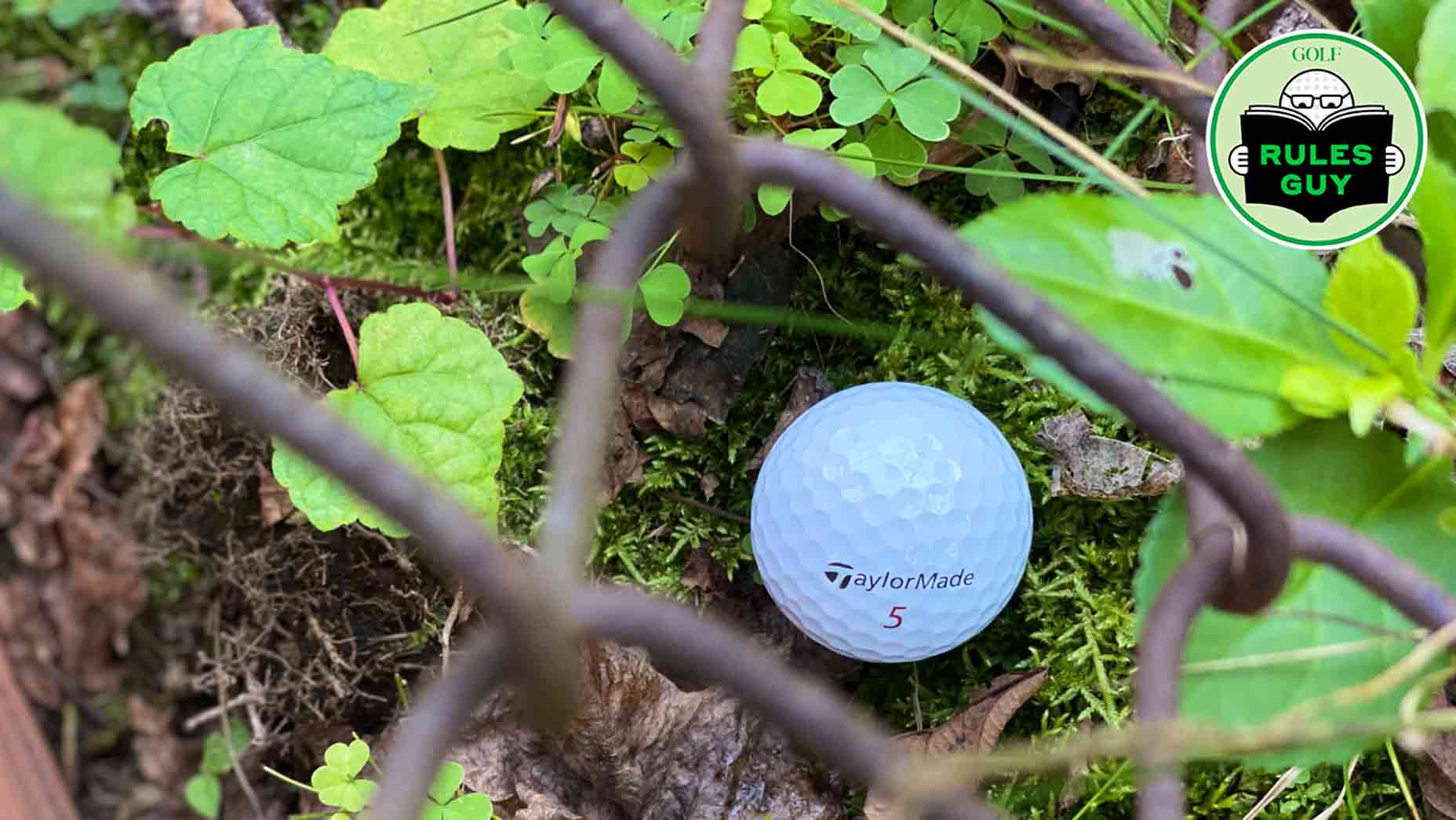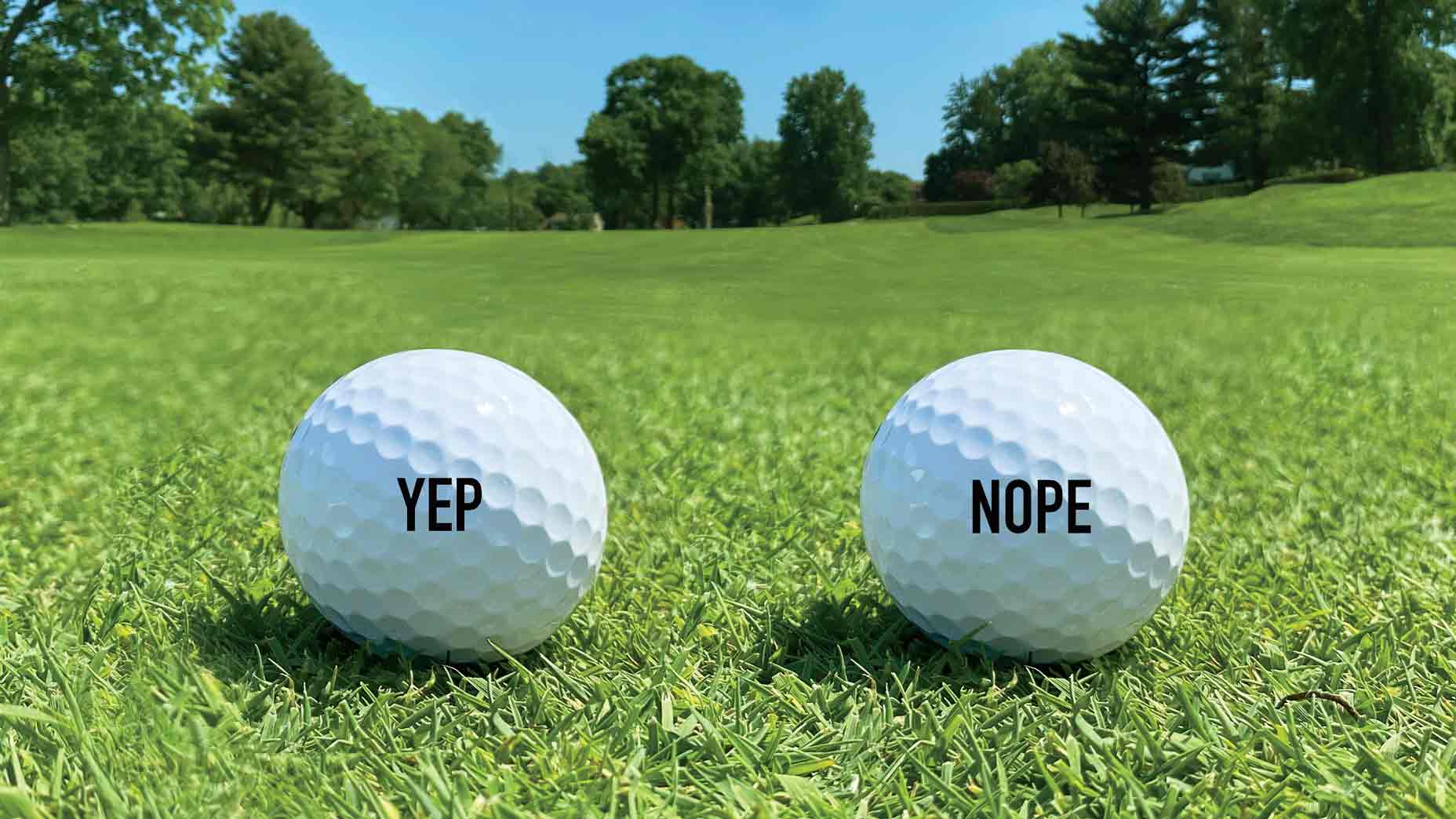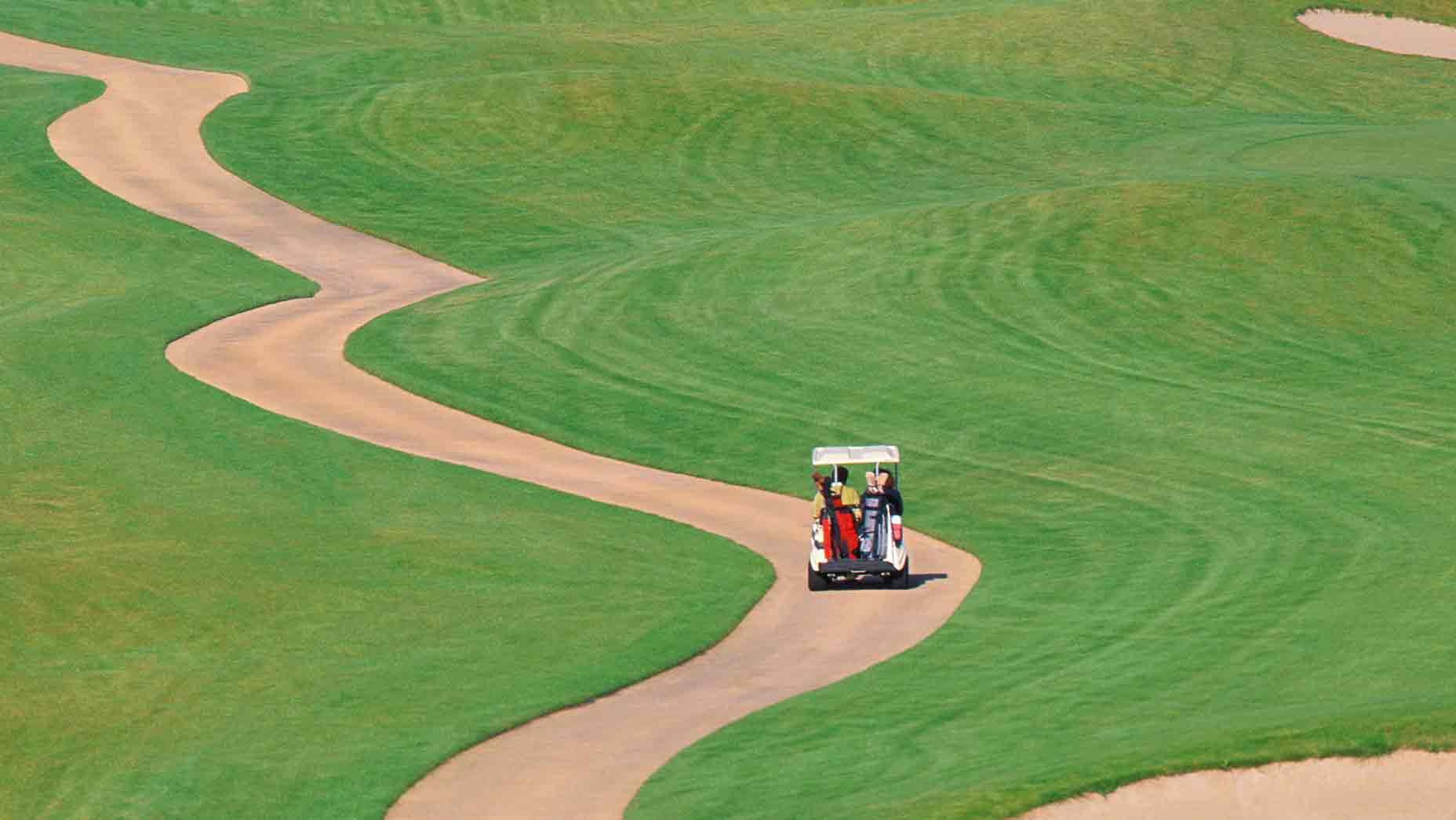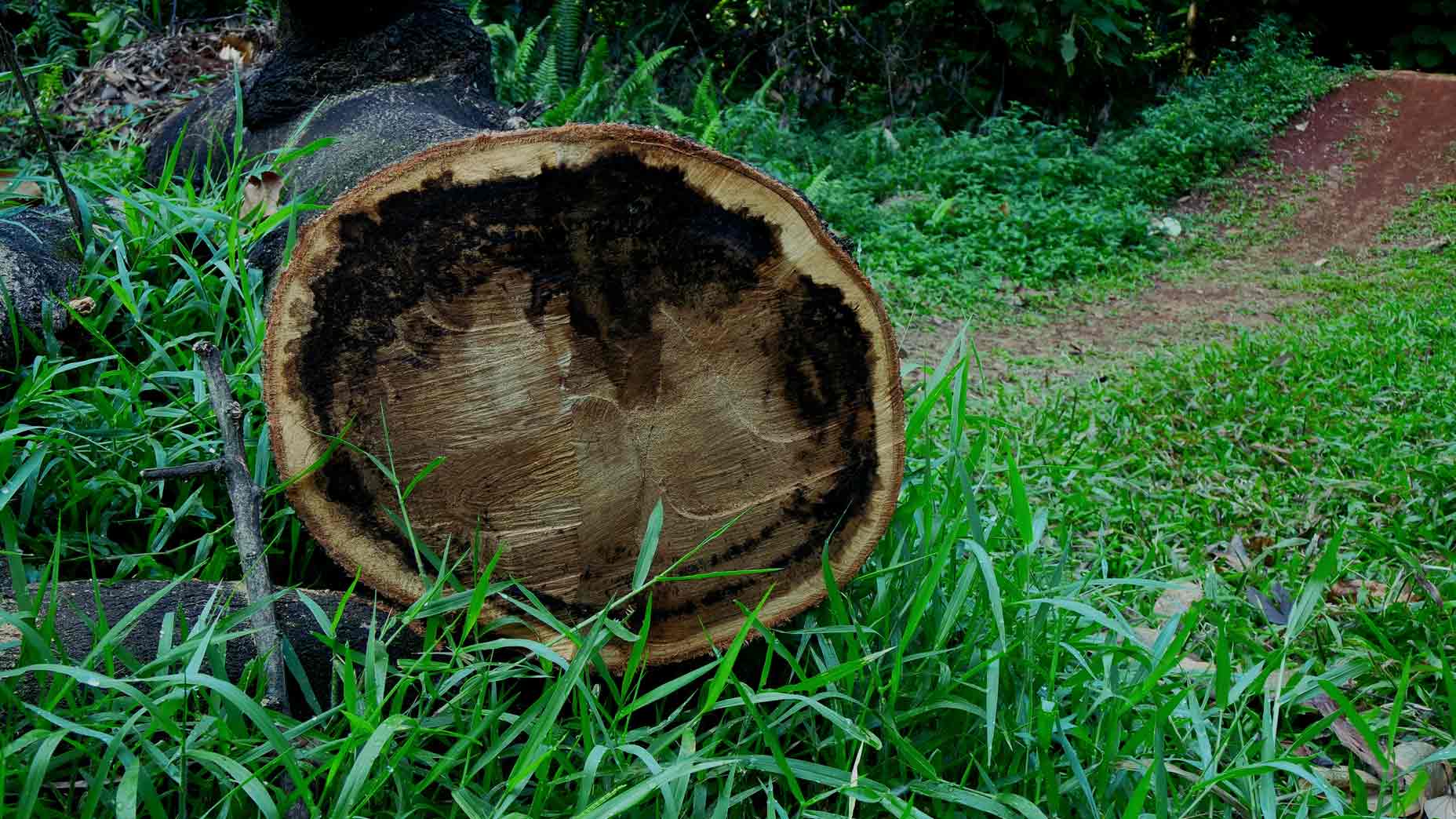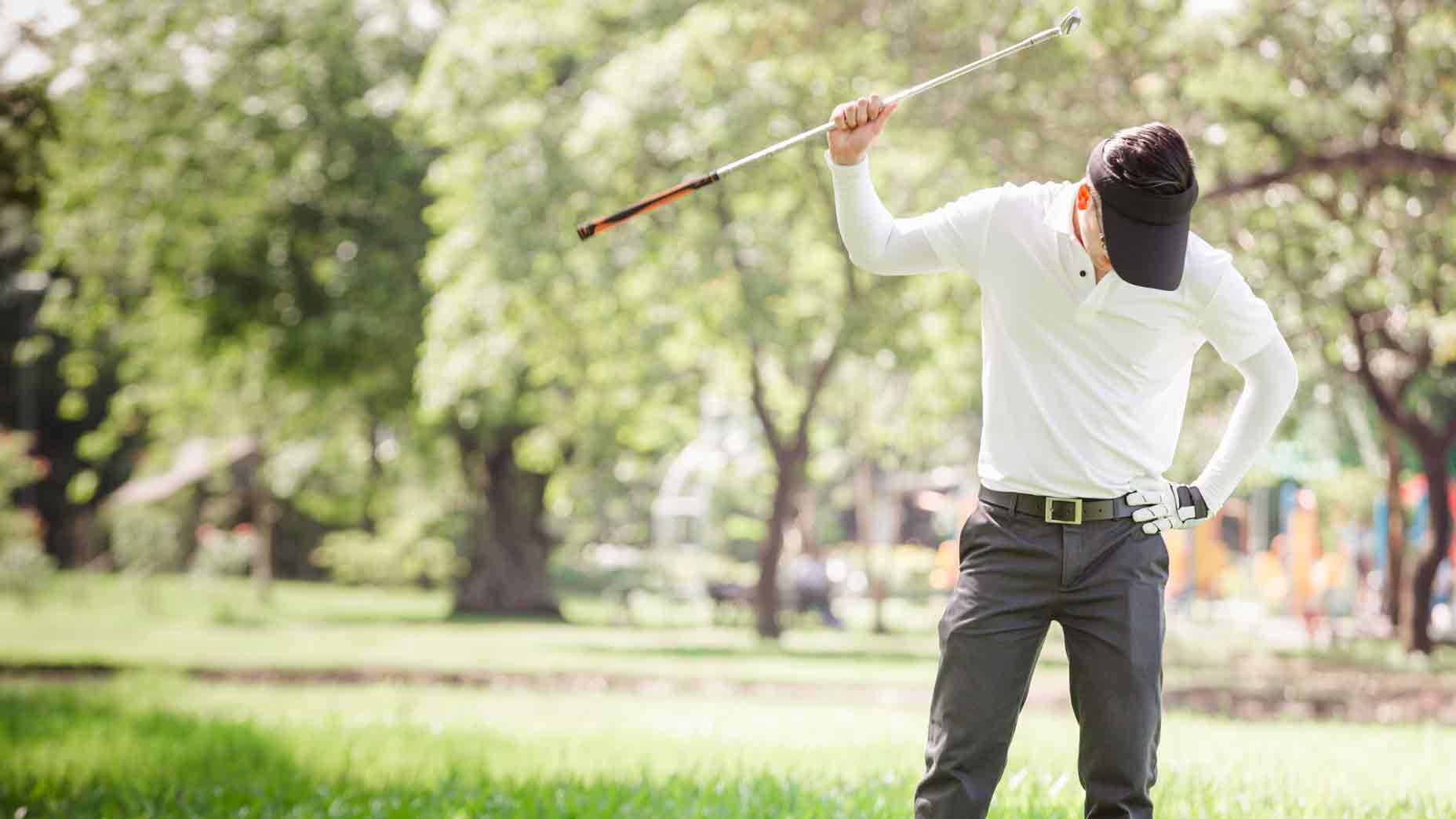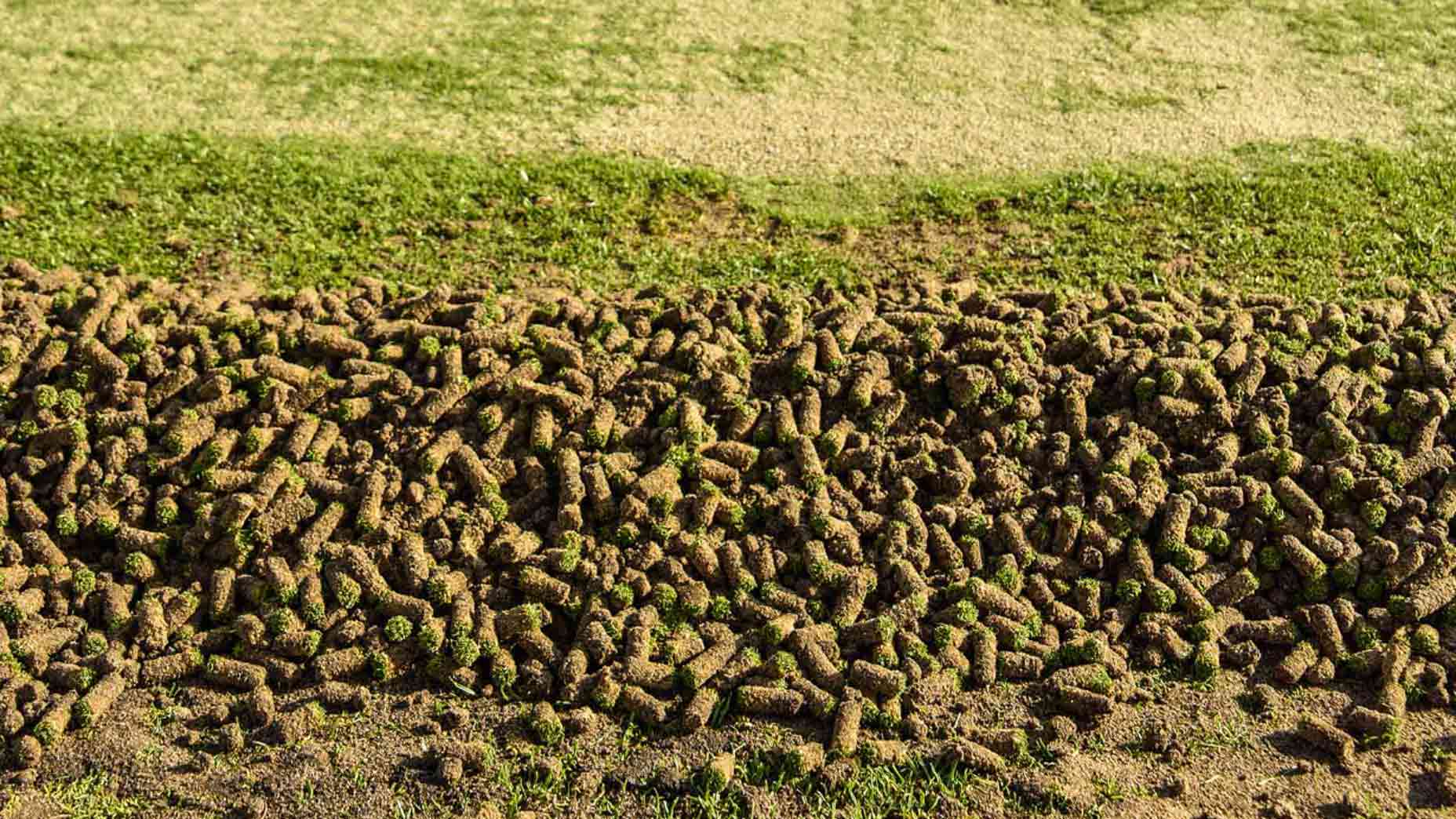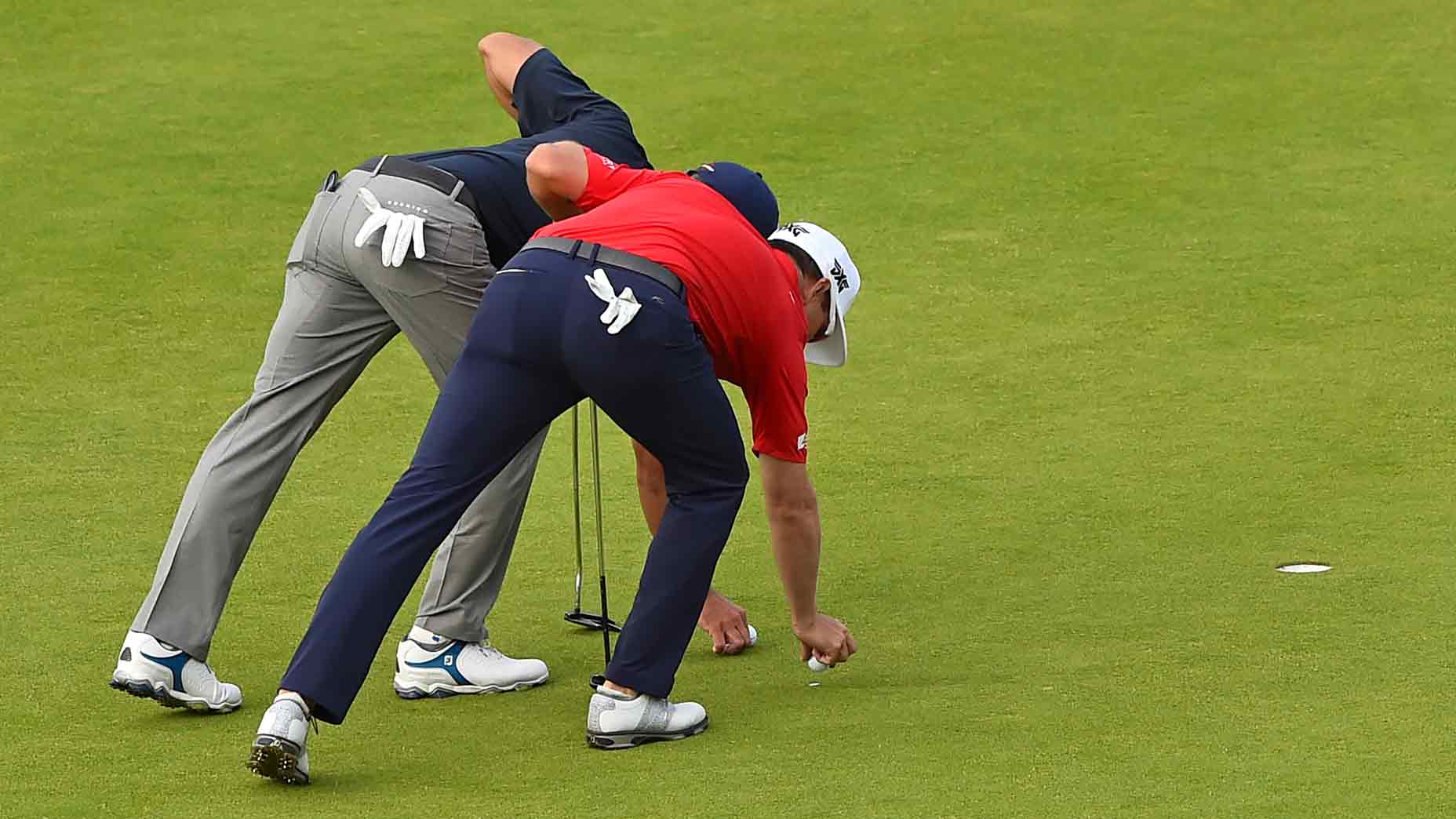The Rules of Golf are tricky! Thankfully, we’ve got the guru. Our Rules Guy knows the book front to back. Got a question? He’s got all the answers.
My ball comes to rest on a tree limb. I can identify it. The limb is directly over an out-of-bounds boundary, and there’s a breeze. Due to the swinging of the limb, sometimes my at-rest ball is in bounds and sometimes it’s not. My opponent says, “Dude, it’s OB!” I say — as the limb swings back in bounds — “It’s an unplayable lie, and I’ll take my penalty stroke and drop right here, in bounds, under the limb.” What say ye? —Dennis Smith, Little River, S.C.
Happens all the time, Dennis…
Seriously, though, once the ball comes to rest out of bounds it is out of bounds (even when in the tree branch), the player is required to take stroke and distance — even if the ball subsequently moves back onto the course.
Rules Guy: Can you take relief from an immovable obstruction in a penalty area?By: Rules Guy
The only way you could take unplayable ball relief is if you were to do before the first time the ball moved out of bounds due to the swinging limb and breeze. And that’s not Rules Guy blowing hot air.
For more OB guidance from our guru, read on …
Our club is using the local two-stroke rule for out of bounds. We have a par 3 with OB about 20 yards behind the green, while the only fairway is in front of the green. So can we drop equidistant from the hole in front of the green if we go out of bounds behind it?
— Neal Prescott, via email
You are referring, per the new-for-2019 nomenclature, to Model Local Rule E-5.
While you’ve got the gist of things, rather than go in a straight line from where the ball last went out of bounds to the opposite side, you instead work on an arc and swing around until you find the nearest fairway point, no closer to the hole than where the original ball went out of bounds. (Think of a compass that is used for technical drawings.)
From there, you get two club-lengths into the fairway to drop, no closer to the hole. That’s model rules behavior.
Need help unriddling the greens at your home course? Pick up a custom Green Book from 8AM Golf affiliate Golf Logix.
Got a question about the Rules? Ask the Rules Guy! Send your queries, confusions and comments to rulesguy@golf.com. We promise he won’t throw the book at you.
